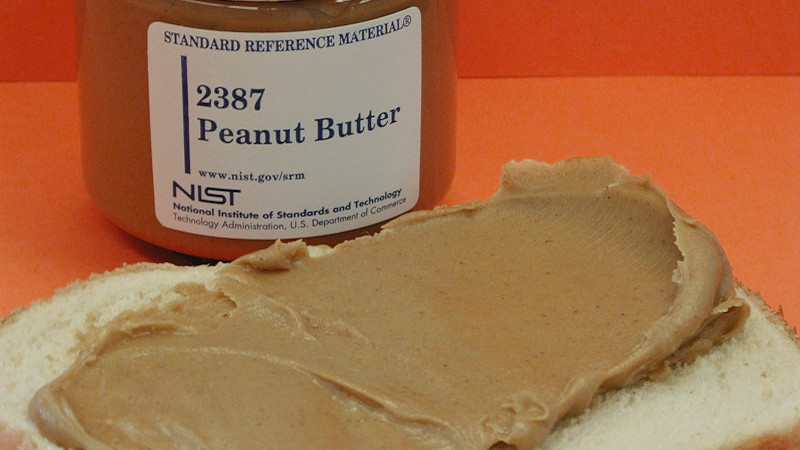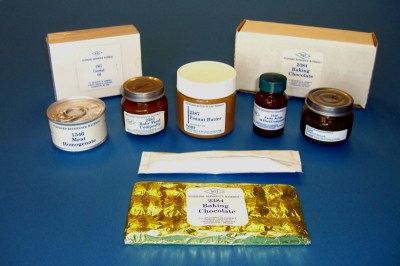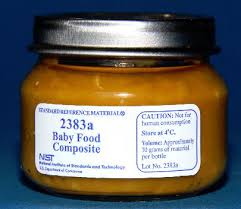

The Mouth-Watering World Of NIST Standard Foods
source link: https://hackaday.com/2020/12/23/the-mouth-watering-world-of-nist-standard-foods/
Go to the source link to view the article. You can view the picture content, updated content and better typesetting reading experience. If the link is broken, please click the button below to view the snapshot at that time.

The Mouth-Watering World Of NIST Standard Foods
The National Institute Of Standards and Technology was founded on March 3, 1901 as the National Bureau of Standards, taking on its current moniker in 1988. The organisation is charged by the government with ensuring the uniformity of weights and measures across the United States, and generally helping out industry, academia and other users wherever some kind of overarching standard is required.
One of the primary jobs of NIST is the production and sale of Standard Reference Materials, or SRMs. These cover a huge variety of applications, from steel samples to concrete and geological materials like clay. However, there are also edible SRMS, too. Yes, you can purchase yourself a jar of NIST Standard Peanut Butter, though you might find the price uncompetitive with the varieties at your local supermarket. Let’s dive into why these “standard” foods exist, and see what’s available from the shelves of our favourite national standards institute.
Know Thine Measurements

NIST produce approximately 1300 different Standard Reference Materials, with 45 of those being in the Food and Beverage category. They’re most famous for their peanut butter, which got attention online when a photo of Dr. Carolyn Burdette testing samples of the material went viral. The range of standards available is vast, though largely unpalatable, with such items as Meat Homogenate and Infant/Adult Nutritional Powder available.
 A selection of various NIST Standard Reference Materials from the Food and Beverage category.
A selection of various NIST Standard Reference Materials from the Food and Beverage category.It’s fun to think about a government organisation creating a “standard” peanut butter to rule them all, one neither better nor worse than one could expect a peanut butter to be. However, these standards are not intended to be a guide on how manufacturers should craft their foods. Instead, the materials are intended for use as calibration standards.
Manufacturers need to verify the nutritional content of their foods, and also need to verify that they’re safe and free of dangerous contaminants. This requires the use of a variety of complex tests. In order to verify that the results of these tests are valid, it’s necessary to have a known standard material on hand to check with. For example, if you run a test on NIST’s standard apple juice, and your measured levels for arsenic match the documented values, you can be relatively certain that when you measure your own company’s product, the numbers you get are valid.
 Some of the standards are more familiar than others. Baby Food Composite is fairly straightforward; Typical Diet is a material with broader testing applications.
Some of the standards are more familiar than others. Baby Food Composite is fairly straightforward; Typical Diet is a material with broader testing applications.While the NIST standards could technically be considered edible, they’re not intended to be ingested, and prices are orders of magnitude higher than what you’d pay at your local store. A 3-pack of standard peanut butter will set you back $881 before shipping, while five bars of baking chocolate will cost you the same. Suffice to say, NIST aren’t known for handing out holiday promo codes, either. If we had to cater a picnic with nothing but SRMs, we’d lean on the milk & egg powders along with flour samples to bake a nice standard loaf of bread, topped with either oyster tissue (a steal at $672 for 25 grams), bovine liver, or perhaps the slurried spinach for those wanting a vegetarian option.
Overall, these reference materials serve an important role in ensuring the quality of the foods and beverages we consume every day. Combined with the formal, bleak aesthetic of their label designs, they also make an excellent gag prop for your refrigerator, albeit at great cost. NIST’s work makes life easier for manufacturers, and helps produce better products for consumers. Thus, the enigmatic Standard Reference Materials play an highly important role in the food and beverage industry.
Recommend
-
 45
45
I could make the argument that the Pixel 3a, with its plastic body and mid-tier processor, watered down the Pixel lineup. However, watering down doesn't always equate to being bad or not a good thing for consumers. Google competitively priced th...
-
 14
14
Duty of care victory prevents trade deals watering down laws to protect children 'We've worked too hard in the UK to allow children’s online protection to be in the hands of trade negotiators,' says Baroness Kidron
-
 8
8
This Week In Security: Watering Hole Attackception, Ransomware Trick, And More Pipeline News In what may be a first for watering hole attacks, we’ve now seen
-
 5
5
Hottest GPU deals: AMD Radeon RX 6700 10GB selling for mouth-watering price...
-
 8
8
This merging of Windows Vista and Windows 11's Fluent design is mouth-watering...
-
 5
5
World of MouthA r...
-
 3
3
Inspiration 24 Best Food Truck Websites with Mouth-Watering Designs By
-
 6
6
Elli CreatorsThe new world of mouthPayment RequiredA platform that connects businesses with diverse creators to help them tell their brand story u...
-
 3
3
15 Traditional Christmas Foods From All Over the WorldSara BirSun, December 24, 2023, 9:00 PM GMT+9·9 min readIt's just not Christmas without...
-
 4
4
The Foods the World Will Lose to Climate ChangeDroughts, heat, and extreme weather are pushing crops to their limits. The race is on to innovate faster than the Earth warms.
About Joyk
Aggregate valuable and interesting links.
Joyk means Joy of geeK